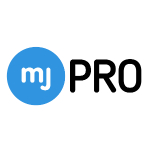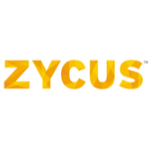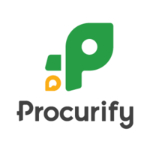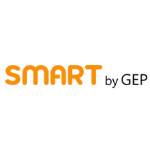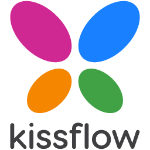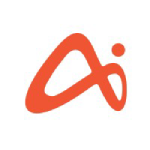List of Best Sourcing Software
Showing 10 of 71 productsmjPRO the perfect solution for all your business needs! Designed with efficiency and ease-of-use in mind, mjPRO is a software for managing your daily operations. From inventory and customer management to invoicing and analytics, mjPRO has got you cov...Read mjPRO Reviews
Coupa is a leading cloud-based spend management platform that helps organizations effectively manage their expenses, improve efficiency and drive business growth. With its user-friendly interface and powerful features, Coupa streamlines procurement,...Read Coupa Reviews
Zycus e-Procurement is a software that streamlines the entire procurement process for businesses of all sizes. With its user-friendly interface features, Zycus e-Procurement allows companies to efficiently manage and track their purchasing activities...Read Zycus e-Procurement Reviews
Procurifyis a cloud-based spend management software that streamlines and centralizes the procurement process, enabling businesses to gain control and visibility over their spending activities. With features such as automated workflows and real-time a...Read Procurify Reviews
GEP Smart is a all-in-one procurement software designed to streamline your sourcing, procurement, and supply chain management processes. With its intuitive user interface features, GEP Smart empowers organizations to drive efficiency, reduce costs, a...Read GEP Smart Reviews
ProcurePort is a leading provider of procurement and sourcing solutions, offering a powerful platform that helps businesses streamline and optimize their purchasing processes. With a user-friendly interface and robust features, ProcurePort is trusted...Read ProcurePort Reviews
Prokuria, a cloud-based procurement software, simplifies and streamlines the procurement process for businesses of all sizes. With its user-friendly interface and robust features, Prokuria helps organizations save time and money by automating tasks s...Read Prokuria Reviews
Kissflow Procurement Cloud is an innovative solution designed to streamline and automate the procurement process. With its user-friendly interface and customizable workflows, it simplifies the entire procurement cycle, from requisition to payment, sa...Read Kissflow Procurement Cloud Reviews
FactWise is a software designed to revolutionize the way you gather, organize, and analyze data. With its user-friendly interface features, FactWise streamlines the process of uncovering insights and making data-driven decisions. Say goodbye to manua...Read FactWise Reviews
Aerchain is a software that simplifies and enhances supply chain management. Designed to optimize logistics, reduce costs, and increase efficiency, Aerchain streamlines processes and provides real-time visibility into inventory and shipments. Say goo...Read Aerchain Reviews
- What Is Sourcing Software?
- Top Reasons Why Businesses Need Sourcing Software?
- What Are the Top Key Features of Sourcing Software?
- What Are the Top Benefits of Sourcing Software?
- What Are the Steps to Choose the Right Sourcing Software?
- What Are the Types of Sourcing Software for Different Industries?
- What Are the Technology Trends for Best Sourcing Software?
- What Are the Deployment Options for Sourcing Software?
What Is Sourcing Software?
Sourcing software refers to a technological platform designed to assist recruiters and hiring managers in identifying suitable job applicants. This platform offers the necessary resources for efficiently identifying, searching, and monitoring prospective job applicants, especially during fluctuations in the job market.
Sourcing system is utilized by recruiters and hiring managers to effectively search for and discern prospective prospects who possess optimal abilities, experience, and background that align with the existing job opportunities.
The best sourcing software tools enable recruiters and hiring managers to efficiently navigate a vast pool of job applicants and effectively identify the most suitable candidates for available positions. Recruiters possess the ability to effortlessly generate job advertisements, monitor applicants, and employ progressive filters to expeditiously refine the pool of candidates, ultimately identifying the most suitable individual for the position.
Moreover, the sourcing software tools offers comprehensive application profiles that enable recruiters to access a prospective candidate's educational background, employment trajectory, skill set, and other pertinent details.
This aids recruiters in making precise selections when choosing the appropriate individual. Sourcing software is a highly significant tool utilized by recruiters and hiring managers to efficiently and expeditiously identify suitable individuals.
Top Reasons Why Businesses Need Sourcing Software?
1. The utilization of the best sourcing software facilitates the automation and optimization of the intricate procedure involved in identifying and procuring new suppliers and commodities, resulting in the conservation of both time and resources.
2. The use of sourcing system enables firms to expeditiously discern emerging trends and ascertain the availability of suppliers within the marketplace.
3. The process aids organizations in conducting comparisons and evaluations of prospective suppliers, enabling them to assess various deals and characteristics with the objective of ultimately choosing the most optimal alternative.
4. The process involves doing a comparative analysis of quotations and delivery schedules provided by several suppliers with the objective of identifying the most advantageous arrangement that ensures both cost-effectiveness and prompt delivery.
5. The utilization of data analysis and market trends allows organizations to make well-informed judgments.
6. The sourcing software tools monitors both present and previous orders in order to enhance the speed and effectiveness of order processing.
7. By utilizing sourcing solutions, organizations are able to remain informed about the most recent developments in industry trends, legislation, and market conditions.
8. The utilization of sourcing software enables organizations to streamline the process of placing orders by providing online ordering and payment functionalities, hence enhancing efficiency and expediting the overall procedure.
9. Sourcing software tools feature allows firms to establish stock alerts and warning systems, which can notify them when their stock levels are approaching depletion.
10. The utilization of market research aids organizations in enhancing their comprehension of their competitors' strategies.
11. The utilization of market analysis and price lists assists organizations in acquiring access to optimal pricing for their products and supplies.
12. The use of quality control systems enables organizations to establish mechanisms that verify the performance of their goods and suppliers, thereby ensuring compliance with the required standards.
13. The utilization of the best sourcing software technology allows enterprises to effectively manage and enhance their inventory and warehouse operations, hence maximizing efficiency and minimizing expenses.
14. The utilization of sourcing management software facilitates the monitoring of orders and suppliers, enabling the analysis of supplier performance and the identification of vulnerabilities within their supply chains.
15. Sourcing system enables firms to effectively streamline their invoicing and payment procedures, thereby mitigating any financial losses arising from payment delays or non-receipt.
What Are the Top Key Features of Sourcing Software?
1. Easy sourcing workflow automation: The utilization of sourcing software allows individuals to automate their workflows, optimize repetitive tasks, and expedite the execution process. The implementation of this approach decreases the need for human labor and streamlines the sourcing procedure as a whole.
2. Candidates tracking and profiling: Recruiters possess the capability to keep pertinent candidate information into a centralized database, hence facilitating the streamlined tracking and management of all prospective applicants. Advanced software features may encompass additional functionalities such as the monitoring of applicant interaction, talent segmentation, and candidate grading.
3. Advertisements and campaign management: Sourcing system offers a streamlined approach to managing intricate advertising campaigns, facilitating the efficient tracking of both cost per hire and campaign performance.
4. Talent Sourcing: Recruiters has the ability to effectively identify top-tier candidates through the utilization of Boolean operators and keyword searches. This is achieved by making use of several repositories, including applicant tracking systems (ATS), professional social networks, job boards, internal databases, and other relevant platforms.
5. Data Analysis and Insights: By utilizing a comprehensive array of analytical tools, recruiters are able to enhance their comprehension of sourcing performance, conduct thorough data analysis, and refine their operational procedures for optimal efficiency.
6. Collaboration Tools: The utilization of sourcing management software facilitates the optimization of contacts among stakeholders, hence establishing robust communication channels equipped with user-friendly collaboration tools.
7. Reporting and Dashboarding: Recruiters possess the ability to generate data-centric dashboards and reports that are customized to meet their specific requirements. These tools enable recruiters to monitor the status of their sourcing efforts and discover potential areas for enhancement.
What Are the Top Benefits of Sourcing Software?
1. Cost Savings: The utilization of sourcing software enables organizations to conduct a comprehensive evaluation of several vendors or suppliers, facilitating the identification of the most economically advantageous option for the specific product or service in question.
2. Improved Decision Making: The utilization of the best sourcing software tools can facilitate firms in making prompt and well-informed selections while evaluating prospective suppliers. Additionally, it can assist in the process of vendor selection by furnishing valuable insights into the capabilities and future performance of suppliers.
3. Greater Efficiency: The utilization of sourcing management software has the ability to decrease the duration required for the identification, comparison, and communication with possible providers. This results in a decrease in the administrative workload for procurement teams and enhances the efficiency of the procurement procedure.
4. Reduction in Errors: The utilization of a sourcing system has the potential to reduce the occurrence of manual errors during the process of data entry and the recording of vendor information. This practice aids in the assurance of making precise and dependable selections.
5. Automated Requisitioning: Sourcing management toolspackages have the capability to automate the process of requisitioning, so enhancing the efficiency of ordering and delivery of goods and services, while simultaneously reducing instances of duplicate orders and other errors.
6. Improved Compliance: The utilization of sourcing software tools by enterprises can facilitate the achievement of regulatory compliance objectives, particularly in terms of maintaining timely and effective communication with vendors regarding modifications in contractual terms and conditions.
7. Increased Transparency: The utilization of sourcing software tools facilitates the process of evaluating vendor performance, encompassing the examination of invoices, purchase orders, and delivery information. Sourcing management tools capability can assist enterprises in promptly identifying and resolving challenges across the whole supply chain.
What Are the Steps to Choose the Right Sourcing Software?
1. Identify Needs: Firstly, Sourcing management tools is imperative to ascertain the specific demands and objectives of the company in relation to the software. It is imperative to take into account many elements such as functionality, usability, scalability, cost, and other pertinent considerations that hold significance to the individual or organization involved.
2. Conduct Market Research: After the identification of goals and objectives, it is recommended to commence market research in order to locate the most suitable software solution. Conduct a search for suppliers that provide the specific features and benefits that align with the requirements of your firm. Conduct a thorough analysis of customer feedback, carefully evaluate relevant case studies, and engage in a comprehensive comparison of various items.
3. Evaluate Solutions: Based on the data obtained from the market research, do an assessment of the various solutions available and their degree of alignment with the requirements of your firm. Please take into account the many characteristics, advantages, expenses, and implementation prerequisites.
4. Select and Implement: Upon careful evaluation of the various options, it is advisable to choose the option that exhibits the most optimal alignment with the company and its specific requirements. Developing a comprehensive strategy for implementation is crucial to ensure the successful execution of a project.
This plan should encompass all the necessary processes required to achieve the desired outcome. By carefully considering and addressing each step, the implementation process may be streamlined and any obstacles can be mitigated.
5. Monitor and Evaluate: Once the sourcing management tools has been implemented, it is imperative to engage in ongoing monitoring and evaluation of its performance. Ensure that the software is meeting your expectations and that your firm is utilizing it to its maximum capacity.
What Are the Types of Sourcing Software for Different Industries?
A wide range of sourcing software options are currently available to cater to the diverse needs of various sectors. The appropriateness of different forms of sourcing management tools may vary depending on the specific sector.
Manufacturers and distributors frequently employ enterprise resource planning (ERP) software to effectively oversee the entirety of the sourcing process, encompassing order intake, production scheduling, and inventory tracking.
Additionally, there exist RFQ (request for quote) software that facilitate the process of businesses sending, comparing, and generating quotes from vendors. Furthermore, there are EDI (electronic data interchange) software solutions that assist businesses in electronic communication with both vendors and customers.
Farm management software is commonly utilized by agriculture and food enterprises to effectively monitor and manage production and sales activities. Supply chain software, such as just-in-time inventory management, warehousing, and transportation management, can provide significant advantages.
Service-oriented enterprises often depend on customer relationship management (CRM) software as a means to effectively oversee the sales process. Specialized software, including analytics software and data mining tools, is also accessible for various businesses.
Sourcing software tools can assist enterprises in evaluating client connections and assessing the efficiency of their supply chain, so enabling them to make more informed decisions regarding sourcing strategies.
What Are the Technology Trends for Best Sourcing Software?
There exist numerous technology advancements that are at the forefront in terms of optimal sourcing software. These encompass
1. Increased Automation: Automated sourcing solutions enable enterprises to expedite and enhance the evaluation of prospective suppliers, resulting in streamlined processes and diminished administrative burden. The prevalence of features such as the consolidation of data from many sources, the automation of decision-making processes, and the incorporation of external sources is steadily growing.
2. Enhanced User Experience: The software used for sourcing purposes is seeing significant advancements in terms of its user interface, which is becoming increasingly user-friendly, and its intuitive features that enable users to make sourcing decisions quickly and accurately.
3. Cost-Effective Solutions: There is a growing trend among businesses to seek for cost-effective solutions that facilitate efficient and accurate evaluation of potential suppliers. There is a growing trend among vendors to adopt cloud-based services as a means of mitigating the expenses related to the implementation and administration of sourcing management software.
4. Leverage Big Data: Numerous sourcing solutions in contemporary times effectively utilize big data to discover novel insights and patterns, hence automating decision-making processes and enhancing precision. Through the utilization of machine learning and artificial intelligence, enterprises have the ability to acquire prompt insights pertaining to various supplier markets and develop supplier comparisons that are more precise.
5. Global Service Reach: There is a growing trend among businesses to seek services from many countries and organizations, highlighting the importance of identifying a solution that possesses global capabilities. In order to optimize cost and efficiency, enterprises are increasingly exploring the adoption of multi-location service providers that possess the capacity to deliver services across diverse geographical areas.
What Are the Deployment Options for Sourcing Software?
The selection of deployment choices for sourcing software is contingent upon several factors, including the individual software in question, the hardware specifications, and the intended purpose of its utilization. Typically, the subsequent deployment alternatives are frequently employed.
1. On-premises: The software is acquired and deployed immediately on the user's local workstation.
2. Cloud-based: Cloud-based software refers to software applications that are stored and operated on a remote server, allowing users to access them through the internet or a network connection. This phenomenon is occasionally denoted as "Software as a Service" (SaaS).
3. Hybrid: The integration of on-premises and cloud-based solutions is commonly employed to cater to diverse user requirements.
4. Containerization: The identical program is encapsulated within a container and subsequently deployed as necessary across numerous machines to provide scalability.
5. Open source: The utilization of third-party software involves the communal sharing and subsequent modification of the software as per individual requirements.
